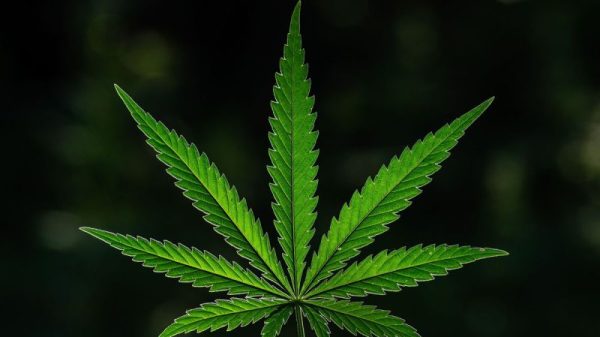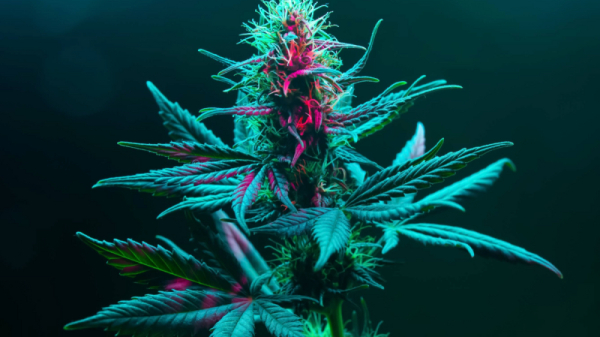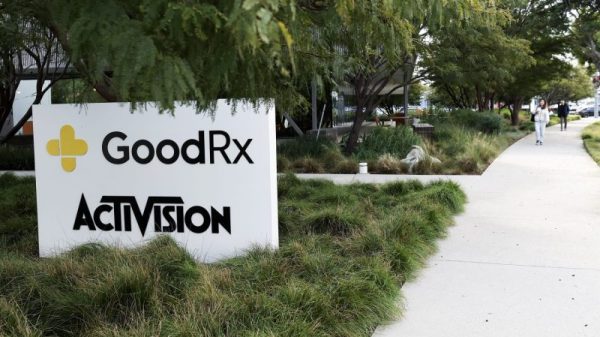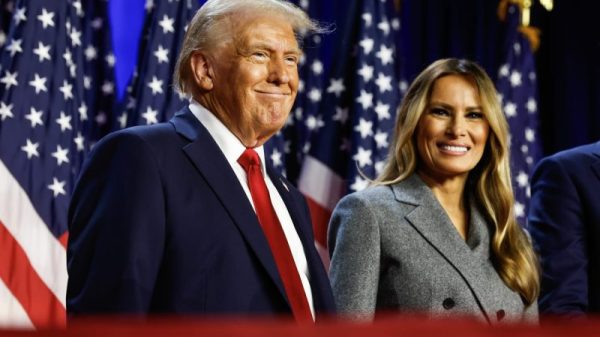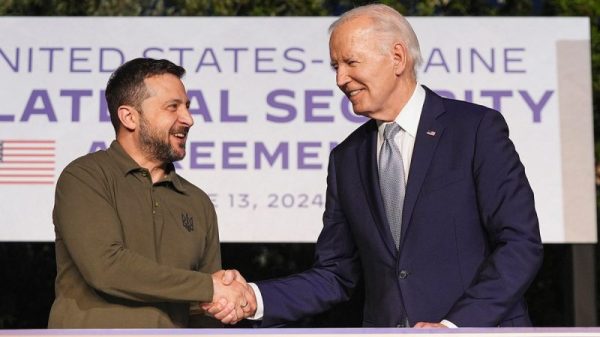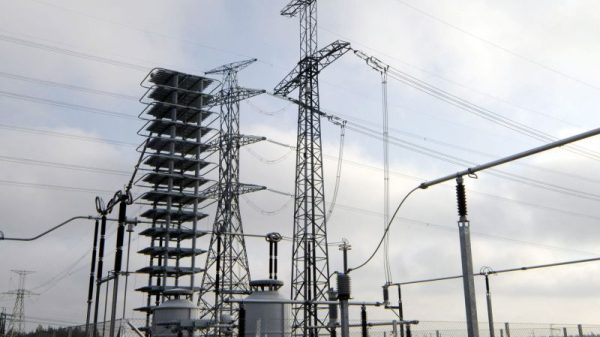Welcome to The Campaign Moment, where we thaw out and analyze the biggest developments in the 2024 election.
(Also: Join me Wednesday at 1 p.m. Eastern time for a Washington Post Live event in which I interview Kentucky’s election-denial-rebuking Republican Secretary of State Michael Adams.)
Voters are voting! And they voted — pretty much like we thought they would. Monday’s frigid Iowa caucuses broke down as the polls suggested, putting Donald Trump (at 51 percent) well on course for a third consecutive Republican presidential nomination.
Florida Gov. Ron DeSantis (21 percent) nipped former U.N. ambassador Nikki Haley (19 percent) for second place, answering perhaps the night’s biggest and most consequential question. Vivek Ramaswamy (8 percent) soon dropped out, backing Trump.
So what do the results say about where we go from here, in next Tuesday’s New Hampshire primary and beyond?
It was a little less than two weeks ago that Haley declared to voters in New Hampshire, “You know Iowa starts it. You know that you correct it.”
The comment — implying Iowa’s voters needed to be corrected — seemed ill-advised given Iowa hadn’t voted yet. Iowans obliged by depriving her of the second-place finish she wanted to claim that the race came down to her and Trump.
Haley has proceeded to make that case anyway. She called it “a two-person race” late Monday night. She has now signaled she won’t debate DeSantis unless Trump participates (which he almost certainly won’t, perhaps causing the cancellation of two debates over the next week in New Hampshire).
But the results didn’t augur well for Haley’s already highly unlikely path to a GOP nomination victory — or, by extension, anyone’s path other than Trump’s.
For one, they gave DeSantis an argument for sticking around. That means not only DeSantis continuing to absorb some of the available non-Trump voters, but Haley contending with a prolonged battle for second place that has meant jousting with DeSantis much more than Trump.
New Hampshire’s Jan. 23 primary presents basically the only plausible shot for someone (Haley) to beat Trump right now; she’s polled within the single digits in some surveys in that state, where independents and moderate voters could play a significant role. She’s also running second in her home state of South Carolina. But New Hampshire’s unusual electorate and South Carolina’s personal tie mean they aren’t really reflective of the rest of the primary calendar. Nationally, Haley and DeSantis are virtually tied.
Secondly, the results Monday suggest the lane for Haley might not exist in the many states whose electorates more closely resemble Iowa’s.
Entrance polls showed nearly half of caucus-goers aligned with the MAGA movement, and nearly 6 in 10 voted for distinctly MAGA candidates (Trump and Ramaswamy). Haley lost among college-educated voters, historically Trump’s weakest education demographic. She won among voters who most emphasized temperament and foreign policy, but those were the smallest chunks of voters. She competed with Trump on electability-first voters, but just 14 percent named that as their most important candidate quality. Voters were much more interested in a candidate who “fights” and shares their values, which was overwhelmingly Trump.
Thirdly — and perhaps most significantly — the results suggested there wasn’t really a market for Haley even if she can make this a two-person contest. A voter analysis from the University of Chicago’s NORC for Fox News and the Associated Press showed more than 6 in 10 Iowa voters said they would be “dissatisfied” with Haley as the party’s nominee. And 3 in 10 said they wouldn’t even vote for her in the general election — more than both Trump and DeSantis. That damages Haley’s electability argument.
Earlier this month, GOP strategist Sara Fagen told Dan Balz and me that Haley needed “the equivalent of an inside straight in poker” in order to win the GOP nomination. Monday’s results might bump that up to an inside straight flush.
Given Trump’s big win in Iowa and what it seems to portend, it’s worth taking stock of how the Republican Party arrived here.
The party has now doubled down on a man whose post-Jan. 6, 2021, impeachment was supported by a historic number of Republicans. He not only faces 91 felony counts across four indictments, but he has been found liable in civil court for sexual abuse and financial fraud. In fact, he was back in court Tuesday.
Trump has long dominated the party, but it wasn’t always a sure thing the GOP would reclaim him as its standard-bearer. After a disappointing 2022 election for Trump-backed candidates, the party briefly flirted with turning the page.
To wit:
In 14 high-quality polls conducted between Election Day 2022 and February 2023, DeSantis led Trump head-to-head in all 14 — by an average of 10 points.Early-state polls back then showed Trump was hardly a shoo-in even in a crowded field, including in Iowa.Some early 2023 polls showed around half of Republicans didn’t even want Trump to run again.
Part of Trump’s continued dominance of the party owes to the fact that his opponents (especially DeSantis) haven’t proved particularly compelling.
But Trump has also insulated himself from any truly lasting impact from his various liabilities. He has spent years pitching any scrutiny of him as a deep-state plot, starting with the Russia investigation. He has argued that he’s basically the only one who can carry the torch (i.e. “I alone can fix it.”) Through punishment of dissidents, he has brought party officials who might dare to raise concerns about him not only to heel, but to feed his talking points. And he has neutralized concerns about his electability by leading the vast majority of his party to falsely believe he never actually lost in 2020.
(About two-thirds of Iowa voters said President Biden’s 2020 win was not legitimate; about 9 in 10 Trump voters said they believed this.)
It was valid to ask whether all of these liabilities might give voters pause when it came time to actually vote. But post-Iowa, it’s become even clearer that Republicans have truly internalized Trump’s spin on these matters, and it should be no surprise when they vote accordingly.
The 2016 Iowa caucuses were a disappointment for Trump. He lost to Sen. Ted Cruz (R-Tex.) despite leading in virtually all of the late polls.
The 2024 caucuses turned out much differently — in large part because Trump appeared to lock down Cruz voters.
The below chart is from a statistical model created by The Post. It uses precinct-level results, along with demographic data, to show how votes likely shifted between candidates from 2016 to 2024.
Where Trump’s support
came from
Estimated change in support in the Iowa
Republican electorate from a statistical
model created by The Washington Post
Trump captured about 70% of Cruz’s voting bloc, which was dominated by evangelicals and conservatives.
2016 IOWA
SUPPORT
2024 IOWA
SUPPORT
Cruz
Trump
51%
Trump
DeSantis
Rubio
Haley
Other
candidates
Other
candidates
He also lost very little support
from 2016 to other candidates.
Note: Data as of Monday 11:54 p.m. Eastern with 97%
percent of precincts reporting
Where Trump’s support came from
Estimated change in support in the Iowa Republican electorate
from a statistical model created by The Washington Post
2016 IOWA SUPPORT
2024 IOWA SUPPORT
Trump captured about 70% of Cruz’s voting bloc, which was dominated by evangelicals and conservatives in 2016.
Cruz
Trump
51%
He also lost very little
support from 2016 to
other candidates.
Trump
DeSantis
Rubio
Haley
Other
candidates
Other
candidates
Note: Data as of Monday 11:54 p.m. Eastern with 97% percent of precincts reporting
For more, including the charts for DeSantis and Haley, see this analysis from The Post’s Lenny Bronner, Derek Hawkins, Luis Melgar and Diane Napolitano.
“How Trump dominated Iowa — and held back DeSantis and Haley” (The Washington Post)“Iowa was Trump’s to win. Can anyone stop his march to the nomination?” (The Washington Post)“Cold comfort for Haley heads in Iowa” (The Washington Post)“The best-case scenarios for Haley and DeSantis don’t end in nomination” (The Washington Post)“How college-educated Republicans learned to love Trump again” (New York Times)“You should go to a Trump rally” (Atlantic)




